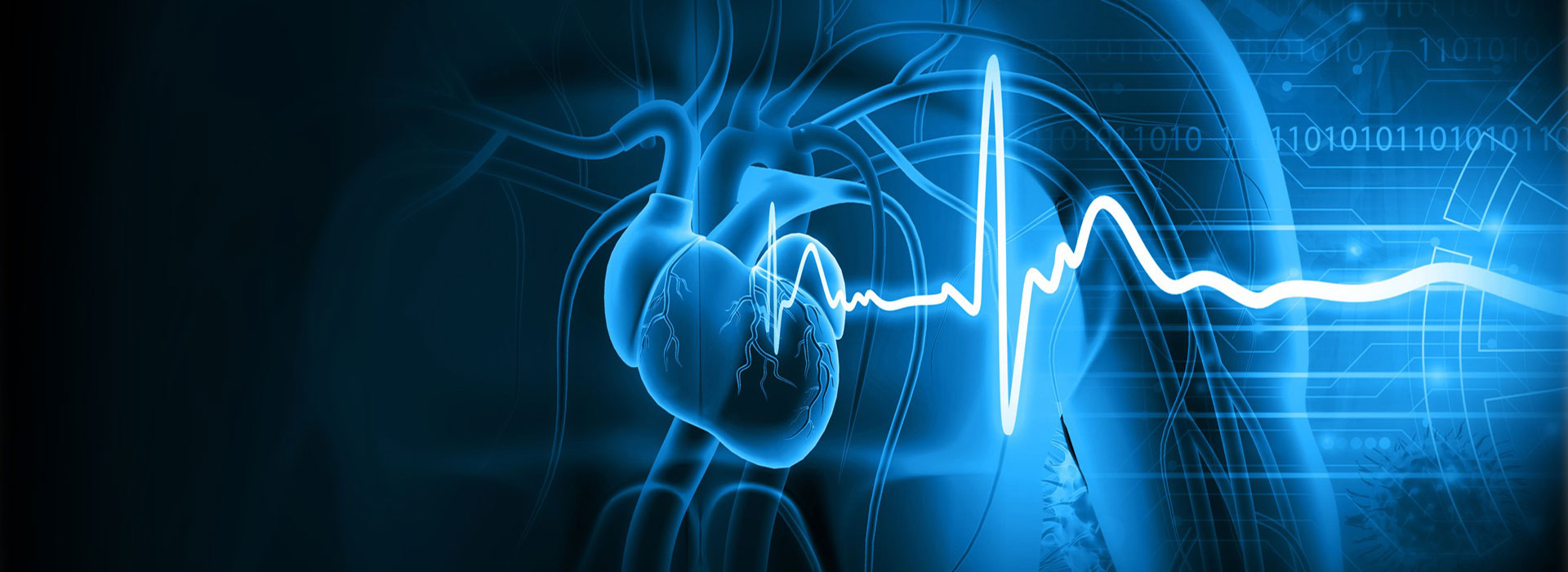
Cardiomyopathies
Cardiomyopathy is a general term for diseases of the heart muscle that occur when the walls of the heart chambers become stretched, thinned, and affect the heart's ability to pump blood around the body. This can lead to heart failure.
Cardiomyopathy is defined as a myocardial disorder (structural and functional) in which the ventricular myocardium is structurally and functionally abnormal, in the absence of secondary causes such as coronary artery disease, hypertension, valvular disease, and congenital heart disease that could account for the observed myocardial disorder. This group of disorders is subdivided into primary, where the heart is the only diseased organ, and secondary types, where cardiomyopathy is the manifestation of other existing systemic disorders-diseases.
Cardiomyopathies are classified as:
based on their symptoms and pathophysiology in the following basic types:
- Dilated cardiomyopathy (DCM-Dilated cardiomyopathy).
- Hypertrophic cardiomyopathy (HCM-Hypertrophic cardiomyopathy).
- Restrictive cardiomyopathy (RCM–Restrictive cardiomyopathy).
- Arrhythmogenic right ventricular dysplasia (ARVC/D-Arrhythmogenic right ventricular cardiomyopathy/dysplasia).
- Unclassified cardiomyopathies.
based on their rationale, to:
A. Genetic cardiomyopathies, due to gene mutations
- Hypertrophic cardiomyopathy: which refers to abnormal hypertrophy of the heart muscle which makes it difficult for the heart to pump blood around the body.
- Arrhythmogenic right ventricular dysplasia: Also genetic disease with segmental, or diffuse replacement of right ventricular myocardium by fibromuscular and fatty tissue.
- Noncompact myocardium (or spongy cardiomyopathy): Genetic disease caused by inhibition of embryogenesis of the left myocardium abdomen.
- Hoardings: e.g. Glycogenases, or lysosomal diseases, e.g. Pompe's disease, Fabry, etc.
B. Cardiomyopathies of mixed etiology (acquired or genetic)
- Dilated cardiomyopathy (acquired, genetic etiology, idiopathic): this is an enlargement of the left ventricular cavity with the result that it cannot adequately promote blood to the body.
- Restrictive cardiomyopathy: when the heart muscle becomes stiff and less elastic, meaning the heart cannot expand properly and fill with blood between heartbeats.
C. Acquired cardiomyopathies
- Tako-Tsubo cardiomyopathy: occurs after psychological stress especially in elderly women and manifests as a myocardial infarction with a very characteristic severe dysfunction of the apex of the left ventricle, which is however reversible.
- Cardiomyopathy of pregnancy or after delivery: Similar to dilated cardiomyopathy cardiomyopathy, which occurs in the third trimester of pregnancy, or soon after childbirth.
- Tachycardia cardiomyopathy: type of MS with left systolic dysfunction due to long-term supraventricular or ventricular tachycardia.
- Diabetic cardiomyopathy: Type of cardiomyopathy experienced by diabetics (usually type-II) and is characterized by hypertrophy, fibrosis and initially diastolic left ventricular dysfunction, progressing to systolic dysfunction, without there is a cause other than diabetes, e.g. hypertension, valvular disease, coronary artery disease.
- Newborn of diabetic mother: Type of hypertrophic cardiomyopathy in newborns mothers with insulin-dependent diabetes.
Symptoms
In the early stages, people with cardiomyopathy may have no symptoms. The first signs and symptoms usually appear as the condition progresses. Regardless of the type of cardiomyopathy the patient has, they may experience:
- Shortness of breath.
- Swelling of the limbs, ankles and feet.
- Abdominal reduction.
- Cough when lying down.
- Fatigue -Irregular heartbeats (arrhythmias).
- Chest pain.
- Dizziness and fainting.
Causes
Cardiomyopathy occurs when the heart muscle becomes stretched if the patient leads an unhealthy lifestyle, suffers from an underlying medical condition, or both. In some people, however, doctors are able to identify certain contributing factors. Possible causes of cardiomyopathy include:
- Long-term and uncontrolled high blood pressure.
- An unhealthy lifestyle (such as nutritional deficiencies of essential vitamins and minerals, heavy alcohol consumption and recreational drug use).
- Metabolic disorders (such as obesity, thyroid diseases or diabetes).
- A viral infection that causes inflammation of the heart muscle.
- Heart damage from a previous heart attack.
- Chronic tachycardia.
- Valvular diseases.
- Disease of the body's tissues or blood vessels (such as: sarcoidosis, amyloidosis, lupus, polyarteritis nodosa, vasculitis or muscular dystrophy).
- A complication of pregnancy.
- Use of certain chemotherapy drugs and radiation to treat cancer.
- Certain infections, which can damage the heart and cause cardiomyopathy.
- Connective tissue disorders.
Risk factors
There are several risk factors that can increase the risk of cardiomyopathy, including family history, high blood pressure, conditions that affect the heart, obesity, alcoholism, drug use, cancer treatments, diabetes, thyroid disorders, hemochromatosis, and diseases that affect the heart.
Cardiomyopathy can lead to other heart conditions, such as heart failure, blood clots, valvular heart disease, stroke, and sudden death.
Diagnosis - Treatment
Important step is the diagnosis that includes taking the individual and family history, clinical examination, blood tests and diagnostic tests such as electrocardiogram, ultrasound of the heart, Holter heart rate and in some cases in the magnetic resonance imaging of the heart, with a selection of these according to symptoms and other elements of the history by the specialist cardiologist, so that the risk for cardiac events can be determined and the appropriate treatment can be instituted.
The treatment of cardiomyopathy may include drugs depending on its type, devices such as pacemakers-defibrillators, operations such as ablation of arrhythmias and surgical operations such as myectomy and heart valve replacement.


